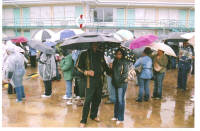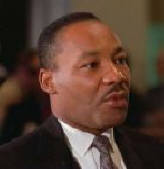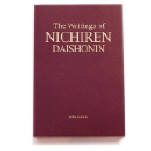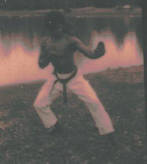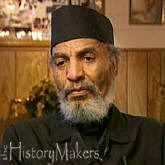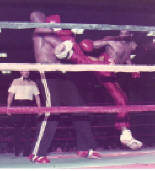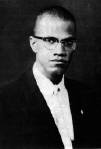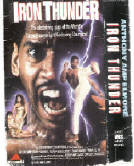The 40th Anniversary Honoring the Legacy of Dr. Martin Luther King
On April 4th 1968 Dr. Martin Luther King was brutally assassinated on the steps of the Lorraine Motel in Memphis, Tennessee. As a youth growing up in Memphis I can clearly remember the conditions and circumstances surrounding the death, the riots and the changing of America.
The Gosho paying debts of Gratitude reads; “
On April 4, 2008 the world was in Memphis, Tennessee honoring the legacy of Dr. Martin Luther King. I watched on CNN news where Presidential candidate John McCain came to Memphis, Tennessee at the Lorraine Hotel to apologize for voting against the American Holiday honoring Dr. King.
April 4, 2008 the rain was pouring down and the cold was blistering. I explained to my young wife who is from Addis Ababa, Ethiopia that it was very important that we take off of work and honor the Legacy of Dr. Martin Luther King.
Further the Gosho paying debts of Gratitude further reads; “
During my high school days just after the death of Dr. King the climate changed in America and I joined an all White Band as what was then a “Colored Singer.” I went to an integrated school and as a Black singer in an “All White Band” I was able to learn a side of America that I once knew as the privilege class.
We had a great band but some of the White racist parents did not approve of their children associating with a Black singer and the band broke up. I experienced racism not only in the band, but I experienced racism at the then tech high school in Memphis. After such horrific treatment as a youth I read books and committed myself to fight against racial injustice.
I was a Black revolutionary who was trying to find my African cultural pride. Everyone laughed at for sporting my large Afro hair-do and my African Dashiki dress. My name appeared in our high school news paper as a joke as one who auditioned for a Tarzan movie. During high school I lead the 1st youth voter registration drive in Tennessee and I refused to take part in our graduation ceremony as a protest against the top students wearing White as superior.
As a youth I found solace practicing Karate and being a young Black revolutionary. My parents deemed me a strange and they never understood me. In 1971 during my freshman year at the University of Memphis I was a Karate Zen practicing vegetarian and strange student along with the hippies and other like me.
Just a few months into college in 1971 I met the Rev. James Bevel who was a direct aide to Dr. Martin Luther King. James Bevel brainstormed the march on washington in 1963. James Bevel became my master and teacher and I learned many things directly regarding the movement and spirit of Dr. Martin Luther King from a top civil rights activist. It was the Rev. James Bevel who told me that I did not need to go to college as well as being frustrated student because I could not pass freshman English. Dr. Martin Luther King indirectly with my association with his direct aide affected changes in my life tremendously. I learned the pain of the struggle.
I quit college and went into business and via my influence in the movement I called my business Pamoja Carpeting Company. “Pamoja” means “Together” in Swahili. My life was that of the Black revolutionary and I participated in the Black movement after Dr. King. I was a member of Jesse Jackson's P.U.S.H. or “people united to save humanity.” James Bevel formed an organization called “MAN” or making a nation. I even went to the Nation of Islam or the “Black Muslims” in America trying to find a correct path for living.
In the fall of 1974 I was looking for Nichiren Shoshu Buddhism and I joined not knowing what I was doing. Very early in my Buddhist practice I learned the concept of “paying one's debt of gratitude” and I dedicated myself to becoming not only a good American citizen, but I dedicated myself to honoring my parents and teachers.
As a young karate student I prayed to become the World karate/Kickboxing champion and I achieved that goal. I promised my parents that I would make them proud of me and I was dedicated to making my city of Memphis proud of me.
I achieved the title of becoming a 5 time World Karate/Kickboxing Champion and I later wrote, produced, directed and starred in a movie about my career called “Iron Thunder.” My mother died in 1984 and I lived to hear her say that she was proud of me. In my life my father would light up with joy and pride in me as a son.
I dedicated myself to becoming the best Buddhist that I could be. After 16 years of unabated Buddhist practice I challenged the SGI regarding their policies of not recognizing African/American contributions to society. I challenged their policies of not having African/Americans on its paid staff or executive boards.
The greatest challenge that I had with the SGI was their refusal to discuss Black Buddhist history as I had learned by reading speeches by Malcolm X. Anthony Elmore was a participant in the movement of racial equality in America and it was a contradiction to my integrity to sit back and not say a word. I wrote a letter to other SGI Buddhist organization members in March of 1991 and I left the SGI for good.
In our Buddhist temples we often speak of paying our debts of gratitude to our Priests and we honor many Nichiren Shoshu ceremonies at our temples. One of the greatest things that I have learned as a Buddhist was the attitude of showing honor and respect to my parents, teachers and my country as the Gosho reads.
